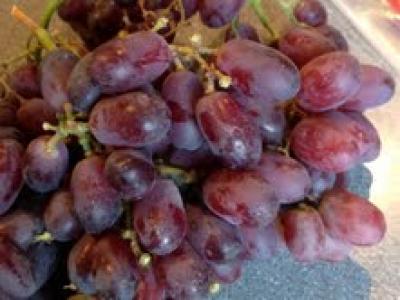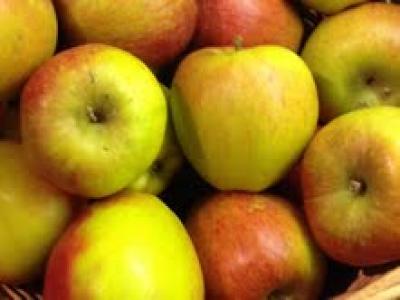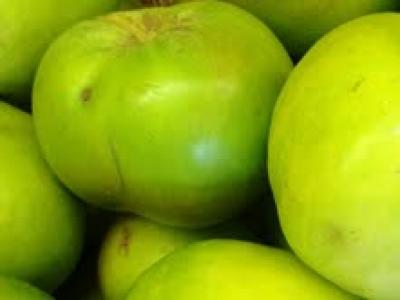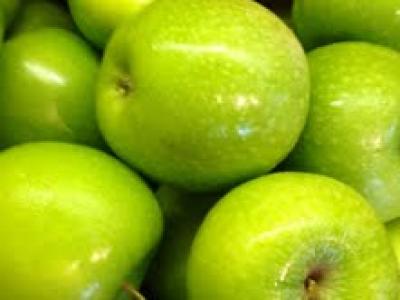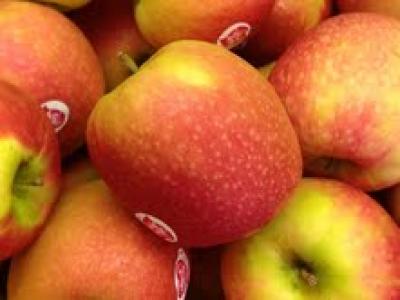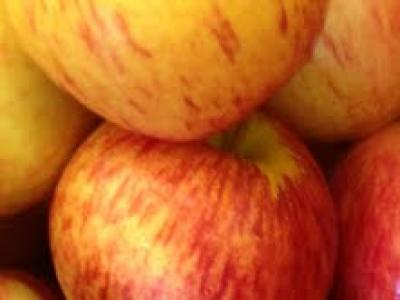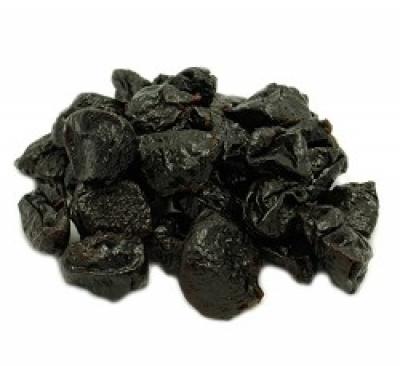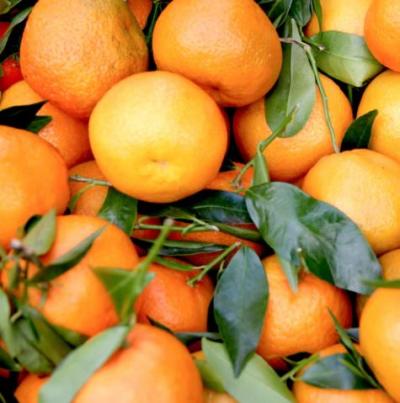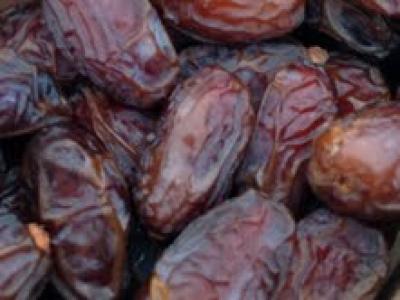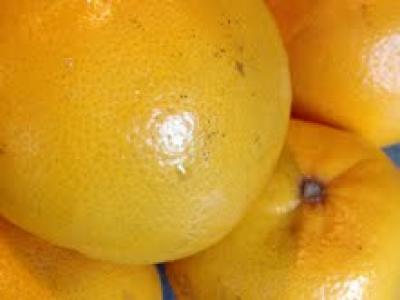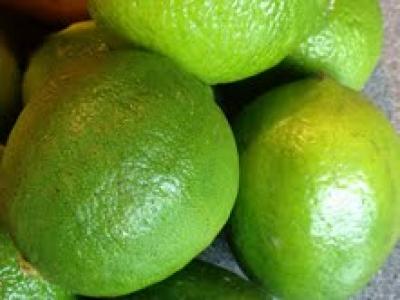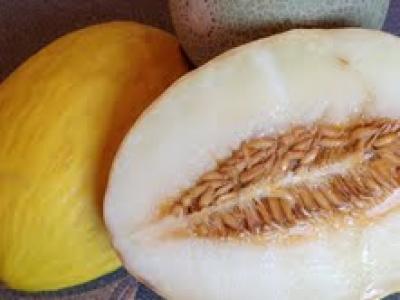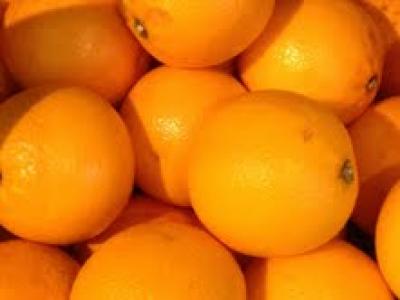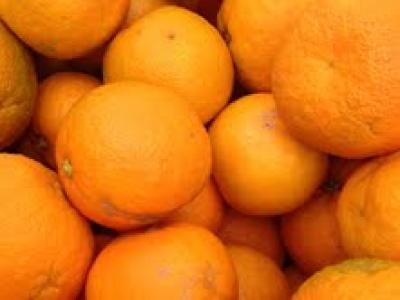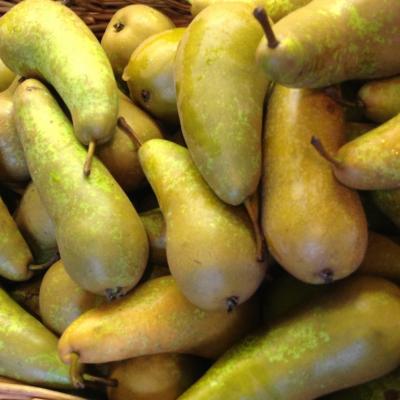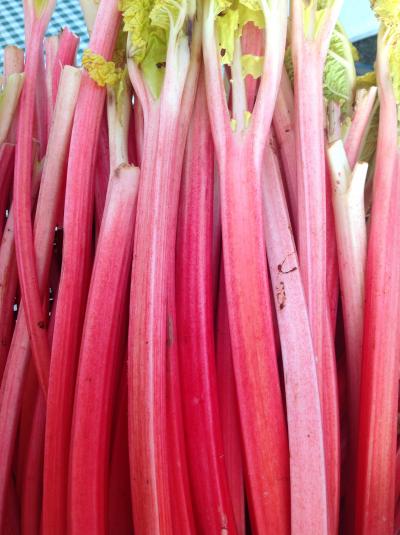Fruit
Fruit
When in season, we prefer to keep it British and source fruit from either our own farm or other farms in Kent, including Meopham based Foxendown Fruit Farm, who supplies us with many of our apples and pears throughout the seasons.
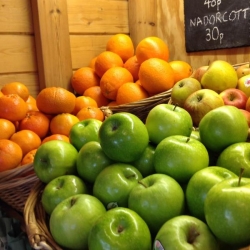
Country of Origin: UK (grown here at Stanhill Farm or at a different farm)
Spain (when out of season)
Nutritional Information: Raspberries are low in calories and saturated fats but are rich source of dietary fibre and anti-oxidants. A 100g of berries provide just 52 calories but contain 6.5g of fibre. Raspberries have significantly high levels of phenolic flavonoid phytochemicals such as anthocyanins, ellagic acid (tannin), quercetin, gallic acid, cyanidins, pelargonidins, catechins, kaempferol and salicylic acid. Scientific studies show that these antioxidant compounds in these berries have potential health benefits against cancer, aging, inflammation, and neuro-degenerative diseases.
Xylitol is a low-calorie sugar substitute extracted from raspberries. A teaspoonful of xylitol contains just 9.6 calories as compared to equivalent to that of sugar, which has 15 calories. Xylitol absorb more slowly in the intestines than sugar and does not contribute to high glycemic index, and thus, can be helpful in diabetics.
Fresh raspberries are excellent source of vitamin C, which is also a powerful natural antioxidant. Consumption of fruits rich in vitamin C helps the body develop resistance against infectious agents, counter inflammation, and scavenge harmful free radicals. Raspberries contains antioxidant vitamins like vitamin A and E. In addition to the above mentioned antioxidants, is also rich in many other health promoting flavonoid poly phenolic antioxidants such as lutein, zeaxanthin. Raspberries contain good amount of minerals like potassium, manganese, copper, iron and magnesium. Potassium is an important component of cell and body fluids that helps controlling heart rate and blood pressure. Manganese is used by the body as a co-factor for the antioxidant enzyme, superoxide dismutase. Copper is required in the production of red blood cells.
They are rich in B-complex group of vitamins and vitamin K. Contain very good amounts of vitamin B-6, niacin, riboflavin, and folic acid. These vitamins are function as co-factors and help body in the metabolism of carbohydrates, protein and fats.
Country of Origin: Variable
Nutritional Information: Strawberries are a rich source of vitamin C, which helps in the production of endorphins and aid the absorption of iron. They are also a good source of potassium, which helps in the generation of nerve impulses. The red colour of strawberries is due to anthocyanidin, a flavonoid known as pecargonidin. These also change our mood for the better. Sweet enough from their own sugar, strawberries are carbohydrate (starch) free but do contain some fibre. The fruit is rich in B-complex group of vitamins. It contains very good amounts of vitamin B-6, niacin, riboflavin, pantothenic acid and folic acid. These vitamins are acting as co-factors help body metabolize carbohydrates, proteins and fats.
Strawberries contain vitamin A, vitamin E and many health promoting flavonoid poly phenolic antioxidants such as lutein, zeaxanthin, beta carotene in small amounts. These compounds help act as protective scavengers against oxygen-derived free radicals and reactive oxygen species (ROS) that play a role in aging and various disease process.
Country of Origin: Spain/Chile (depending on the time of year)
Season: All year round
Additional Info: Fresh blueberries are bursting with flavour, delivering a hit of sweetness to whatever dish you add them to. Perfect to snack on raw, use in baking, smoothies and much more.
Country of Origin: Costa Rica/Peru/Cameroon
Season: All year round
Nutritional Information: Creamy, rich, and sweet, bananas are a favourite food for everyone. They could not be more convenient to enjoy, and they are a good source of nutrients. In addition to being eaten raw, bananas are a wonderful addition to a variety of recipes from salads to baked goods.
Country of Origin: South Africa/Italy/Spain
Nutritional Information: Grapes contain flavonoids, which help prevent development of heart disease. Eating grapes regularly will help impede the development of plaque buildup in the arteries, keeping the arteries open for a strong flow of blood to all of the organs of the body. The skins of grapes also contain polyphenols and anthocyanins, which are antioxidants, these antioxidants work to prevent damage to the body from free radicals that harm membranes and proteins, and also help impede cancer development. The lutein in grapes helps protect vision. This naturally occurring carotenoid helps prevent macular degeneration, an eye disease that often appears in the elderly and causes serious damage to the vision. Grape skins contain resveratrol which works to impede blood clots and thus helps to lower the risk of a stroke. Grapes also contain vitamins A and C.
Country of Origin: South Africa/Brazil/Italy/Spain
Nutritional Information: Grapes contain flavonoids, which help prevent development of heart disease. Eating grapes regularly will help impede the development of plaque buildup in the arteries, keeping the arteries open for a strong flow of blood to all of the organs of the body. The skins of grapes also contain polyphenols and anthocyanins, which are antioxidants, these antioxidants work to prevent damage to the body from free radicals that harm membranes and proteins, and also help impede cancer development. The lutein in grapes helps protect vision. This naturally occurring carotenoid helps prevent macular degeneration, an eye disease that often appears in the elderly and causes serious damage to the vision. Grape skins contain resveratrol which works to impede blood clots and thus helps to lower the risk of a stroke. Grapes also contain vitamins A and C.
Country of Origin: UK/France (depending on the time of year)
Season: December to March
Additional Info: The Braeburn is a cultivar of apple that is firm to the touch with a red/orange vertical streaky appearance on a yellow/green background. Its colour intensity varies with different growing conditions. Braeburn apples have a combination of sweet and tart flavour. They are useful in cooking in that they hold their shape and do not release a great deal of liquid making them ideal for tarts.
Country of Origin: UK (From Foxendown Fruit Farm in Kent)
Season: Early September to February
Additional Info: The Bramley is a cultivar of apple which is usually eaten cooked due to its sourness. Once cooked, however, it has a lighter flavour and becomes golden and fluffy. The classic English cooking apple, ideal stewed or baked or in pies.
Country of Origin: UK
Season: October to December
Additional Info: Cox's Orange Pippin is highly regarded due to its excellent flavour and attractive appearance. The apples are of medium size, orange-red in colour, deepening to bright red and mottled with carmine over a deep yellow background. The flesh is very aromatic, yellow-white, fine-grained, crisp, and very juicy. Cox's flavour is sprightly subacid, with hints of cherry and anise, becoming softer and milder with age. When ripe apples are shaken, the seeds make a rattling sound as they are only loosely held in the apple's flesh.
Country of Origin: France/Australia/South America (depending on the time of year).
Season: All year round.
Additional Info: Granny Smith is a tip-bearing apple cultivar with a hard, light green skin and a crisp, juicy flesh. They go from being completely green to turning yellow when overripe. The acidity mellows significantly on ripening, and it takes on a balanced flavour.
Country of Origin: Europe/Southern Hemisphere (depending on the time of year)
Season: All year round.
Additional Info: Pink Lady apples are elongated and have an asymmetrical shape. The skin is a vivid green covered in a pinkish blush which becomes a deeper shade of red where the apple was exposed to more sun. Pink Lady apples have a crunchy texture and a tart taste with a sweet finish. The white flesh is juicy and crisp, and offers a “fizz-like” burst of flavour.
Country of Origin: UK/France (depending on the time of year)
Season: All year round
Additional Info: Gala apples are covered in a thin yellow to orange skin, highlighted with pink to red stripes that vary in hue dependent upon the apples maturity. Their dense flesh is creamy yellow and crisp, offering a mildly sweet flavour and flora aroma. Gala’s that are allowed to reach the peak of their sweetness on the tree will have a deeper red hue and a slightly sweeter flavour.
Ingredients:
Prunes, preservative: potassium sorbate (e202.)
For allergens, see ingredients highlighted in bold and underlined.
Possible cross contamination
The following potential allergens may have come in contact with this product in transport, packing or production:
Gluten, Wheat, Peanuts, Soya, Milk, Nuts, Sesame, Sulphur dioxide
Please note:
Although we make every effort to ensure this information is correct and accurate, we cannot be held liable in instances where it is incorrect.
Country of Origin: various
Season: All year round
Additional Info: Avocado or Alligator pear are commercially valuable and are cultivated in tropical and Mediterranean climates throughout the world. They have a green-skinned, fleshy body that may be pear-shaped, egg-shaped, or spherical. Not just for guacamole, sliced avocados lend a buttery texture and delicious flavour to sandwiches and salads. But the health benefits of avocados are stellar, especially with the lipid content that allows your body to absorb nutrients they wouldn't otherwise.
Country of Origin: Spain/Morocco
Nutritional Information: Clementines have a high vitamin C content and consuming just two clementines fulfills the daily recommendation for vitamin C. They contain nutrients such as potassium, fibre, vitamin A, calcium, thiamine, folate, magnesium and copper. The clementine's scent causes the brain to release serotonin, a neurotransmitter that affects mood. Serotonin also helps to regulate blood pressure, sleep and body temperature. The calming effect can help to alleviate stress or anxiety and elevate mood. Clementines contain citric acid, which is an antibacterial agent. Using clementine juice topically can eliminate the bacteria that cause spots. Additionally, the vitamin C in clementines can stimulate collagen production in the skin; thus, minimising fine lines and improving skin's texture.
Country of Origin: Israel
Nutritional Information: The health benefits of dates are uncountable, as this fruit is affluent in natural fibres. Dates are even rich in several vitamins and minerals. These natural products contain oil, calcium, sulphur, iron, potassium, phosphorous, manganese, copper and magnesium which are advantageous for health. It is said that consumption of one date daily is necessary for a balanced and healthy diet. Dates help in fighting constipation, intestinal disorders, weight gain, heart problems, sexual weakness, diarrhoea and abdominal cancer. The health benefits of dates have made them the best nourishment for muscles development. Dates are useful in preventing abdominal cancer. It is said that taking one date in a day will help you to maintain healthy eyes for your lifetime.
Country of Origin: Spain/USA/Israel
Nutritional Information: Grapefruit is rich in dietary insoluble fibre pectin, which by acting as bulk laxative helps to protect the colon mucous membrane by decreasing exposure time to toxic substances in the colon as well as binding to cancer causing chemicals in the colon. Pectin has also been shown to reduce blood cholesterol levels by decreasing re-absorption of cholesterol binding bile acids in the colon. The fruit contains very good levels of vitamin A and flavonoid antioxidants such as naringenin, beta-carotene, xanthin and lutein. Studies suggest that these compounds have antioxidant properties and are essential for vision. Vitamin A is also required maintaining healthy mucus membranes and skin. Grapefruit is a good source of antioxidant vitamin C, which helps the body develop resistance against infectious agents and scavenge harmful free radicals. It contains moderate levels of B complex group of vitamins such as folates, riboflavin, pyridoxine, and thiamin in addition to some resourceful minerals such as iron, calcium, copper, and phosphorus.
Country of Origin: Italy
Nutritional Information: Kiwi fruits are rich in many vitamins, flavonoids and minerals. In particular, they contain a high amount of vitamin C, E and A and a good amount of beta-carotene. Vitamin C is a water-soluble antioxidant that has been proven to protect our body from free radicals, dramatically improving the health of individuals. It has been shown to lower blood pressure, and thereby lower the chances of developing of hypertension, as well as cardiovascular disease. Vitamin C also ensures proper dilation of blood vessels, which may prevent atherosclerosis, high cholesterol, congestive heart failure, and angina pectoris. Kiwi is a good source of magnesium, potassium, and copper, all of which may function separately or together to protect the cardiovascular system.The fibre in kiwi fruit may be an effective against a number of ailments. Studies have found that eating a high fibre diet can lower cholesterol levels and in turn reduce the risk of heart disease.
Country of Origin: Spain
Nutritional Information: Lemon can be used to treat throat infections, indigestion, constipation, dental problems, fever, skin problems, internal bleeding, rheumatism, burns, respiratory disorders, cholera and high blood pressure. Known for its therapeutic properties since generations, lemon helps to strengthen the immune system and cleanse the stomach. It is not only a blood purifier but also enables body to fight diseases. Lemon juice, especially, has several health benefits associated with it. Useful for treating kidney stones, curing heart strokes and reducing the body temperature. The health benefits of lemon are due to many nourishing elements like vitamin C, vitamin B, phosphorous, proteins, and carbohydrates present in it. Lemon is a fruit that contains flavonoid, a composite that holds antioxidant and anti-cancer properties.
Country of Origin: Mexico
Nutritional Information: Lime is abundant in vitamin C, which increases the body's resistance to disease, aids the healing of wounds and prevents damage to the eyes. It is also helpful in maintaining the health of the teeth and other bones of the body. It prevents decay and loosening of the teeth, dental caries, toothache, bleeding of the gums and fragility of bones. A glass of warm water with lime juice and a teaspoonful of honey is an ideal remedy for cold and dry cough. Lime juice is a pep-up in cases of listlessness and a rundown feeling due to vitamin deficiency. The pectin content in fruit pulp is said to be beneficial in lowering blood cholesterol. The rind of the fruit contains a volatile oil which is used in medicine for improving digestion and removing wind. It is considered highly beneficial in the treatment of digestive disorders. Lime juice is of great value in constipation, when it is taken first thing in the morning in a glass of warm water. The citric acid in limes has an alkaline reaction in the system which can relieve peptic ulcers. A few drops of warm lime juice diluted with water should be instilled in the eyes in case of conjunctivitis. Lime juice diluted in warm water was proven valuable in cystitis. It gives relief to burning sensation and also stops bleeding in cystitis. It's also excellent for weight reduction. Fresh juice of a lime mixed in a glassful of water and sweetened with honey should be taken every morning on empty stomach in case of obesity.
Country of Origin: Brazil
Nutritional Information: Melons are an excellent source of vitamins, in particular provitamin A (beta-carotene), with its antioxidant properties, 100g of melon providing most of the RDA of provitamin A. Beta-carotene transforms into vitamin A in the body, this is an essential vitamin for the growth and development of cells, vision and the immune system. Melons are also a great source of vitamin C, which is necessary in the production of collagen and healing, and it is also a solid antioxidant. Melons also contain B vitamins but in moderate quantities.
Melons are rich in potassium, magnesium and calcium, iron, zinc, copper, manganese and iodine. All varieties of melon contain these essential vitamins and minerals. Melons with orange flesh are also good sources of bioflavonoids and other vegetable pigments, which could help prevent certain types of cancer and heart disease. Finally, it is important to note that melon has useful fibre, which helps the intestines to function well.
Country of Origin: Spain/Morocco
Nutritional Information: Nadorcotts have a high vitamin C content and consuming just two nadorcotts fulfills the daily recommendation for vitamin C. They contain nutrients such as potassium, fibre, vitamin A, calcium, thiamine, folate, magnesium and copper. The nadorcotts scent causes the brain to release serotonin, a neurotransmitter that affects mood. Serotonin also helps to regulate blood pressure, sleep and body temperature. The calming effect can help to alleviate stress or anxiety and elevate mood. Nadorcotts contain citric acid, which is an antibacterial agent. Using nadorcotts juice topically can eliminate the bacteria that cause spots. Additionally, the vitamin C in nadorcotts can stimulate collagen production in the skin; thus, minimising fine lines and improving skin's texture.
Country of Origin: Spain/Morocco
Nutritional Information: Nutrients in oranges are plentiful and diverse. The fruit is low in calories, contains no saturated fats or cholesterol, but is rich in dietary fibre, pectin. Oranges are an excellent source of vitamin C which helps the body develop resistance against infectious agents and scavenge harmful, pro-inflammatory free radicals from the blood. Oranges also contain very good levels of vitamin A, and other flavonoid antioxidants such as alpha and beta-carotenes, beta-cryptoxanthin, zea-xanthin and lutein. These compounds are known to have antioxidant properties. Vitamin A is also required for maintaining healthy mucus membranes and skin and is essential for vision. Consumption of natural fruits rich in flavonoids helps body to protect from lung and oral cavity cancers. It is a very good source of B-complex vitamins such as thiamin, pyridoxine, and folates. These vitamins are essential in the sense that the body requires them from external sources to replenish. Orange contains very good amounts of minerals like potassium and calcium. Potassium is an important component of cell and body fluids that helps control heart rate and blood pressure through countering sodium actions.
Country of Origin: Sicily/Italy
Nutritional Information: Nutrients in oranges are plentiful and diverse. The fruit is low in calories, contains no saturated fats or cholesterol, but is rich in dietary fibre, pectin. Oranges are an excellent source of vitamin C which helps the body develop resistance against infectious agents and scavenge harmful, pro-inflammatory free radicals from the blood. Oranges also contain very good levels of vitamin A, and other flavonoid antioxidants such as alpha and beta-carotenes, beta-cryptoxanthin, zea-xanthin and lutein. These compounds are known to have antioxidant properties. Vitamin A is also required for maintaining healthy mucus membranes and skin and is essential for vision. Consumption of natural fruits rich in flavonoids helps body to protect from lung and oral cavity cancers. It is a very good source of B-complex vitamins such as thiamin, pyridoxine, and folates. These vitamins are essential in the sense that the body requires them from external sources to replenish. Orange contains very good amounts of minerals like potassium and calcium. Potassium is an important component of cell and body fluids that helps control heart rate and blood pressure through countering sodium actions.
Country of Origin: Spain
Nutritional Information: Nutrients in oranges are plentiful and diverse. The fruit is low in calories, contains no saturated fats or cholesterol, but is rich in dietary fibre, pectin. Oranges are an excellent source of vitamin C which helps the body develop resistance against infectious agents and scavenge harmful, pro-inflammatory free radicals from the blood. Oranges also contain very good levels of vitamin A, and other flavonoid antioxidants such as alpha and beta-carotenes, beta-cryptoxanthin, zea-xanthin and lutein. These compounds are known to have antioxidant properties. Vitamin A is also required for maintaining healthy mucus membranes and skin and is essential for vision. Consumption of natural fruits rich in flavonoids helps body to protect from lung and oral cavity cancers. It is a very good source of B-complex vitamins such as thiamin, pyridoxine, and folates. These vitamins are essential in the sense that the body requires them from external sources to replenish. Orange contains very good amounts of minerals like potassium and calcium. Potassium is an important component of cell and body fluids that helps control heart rate and blood pressure through countering sodium actions.
Country of Origin: UK (grown at Foxendown Fruit Farm, Meopham, Kent)
Belgium (when out of season)
Conference Late Sep to Jan
Eat crisp or let soften; sweet and juicy
South African and Spanish Season is currently underway and in bloom for these delicious plums.
Country of Origin: England
Nutritional Information: Rhubarb is an excellent source of vitamin C, which is important to help support a healthy immune system. It is high in dietary fibre which helps to maintain regularity within the digestive system, and is a good source of calcium which is essential for strong bones and teeth. Rhubarb is low in sodium and saturated fat which makes it a very good food to help prevent heart related diseases. It is also high in vitamin K, which is thought to help prevent diabetes by reducing the onset and development of insulin resistance, and is also important because it allows your blood to clot normally. Rhubarb also contains lutein which helps neutralise free radicals, and contributes to healthy skin and eyes.





